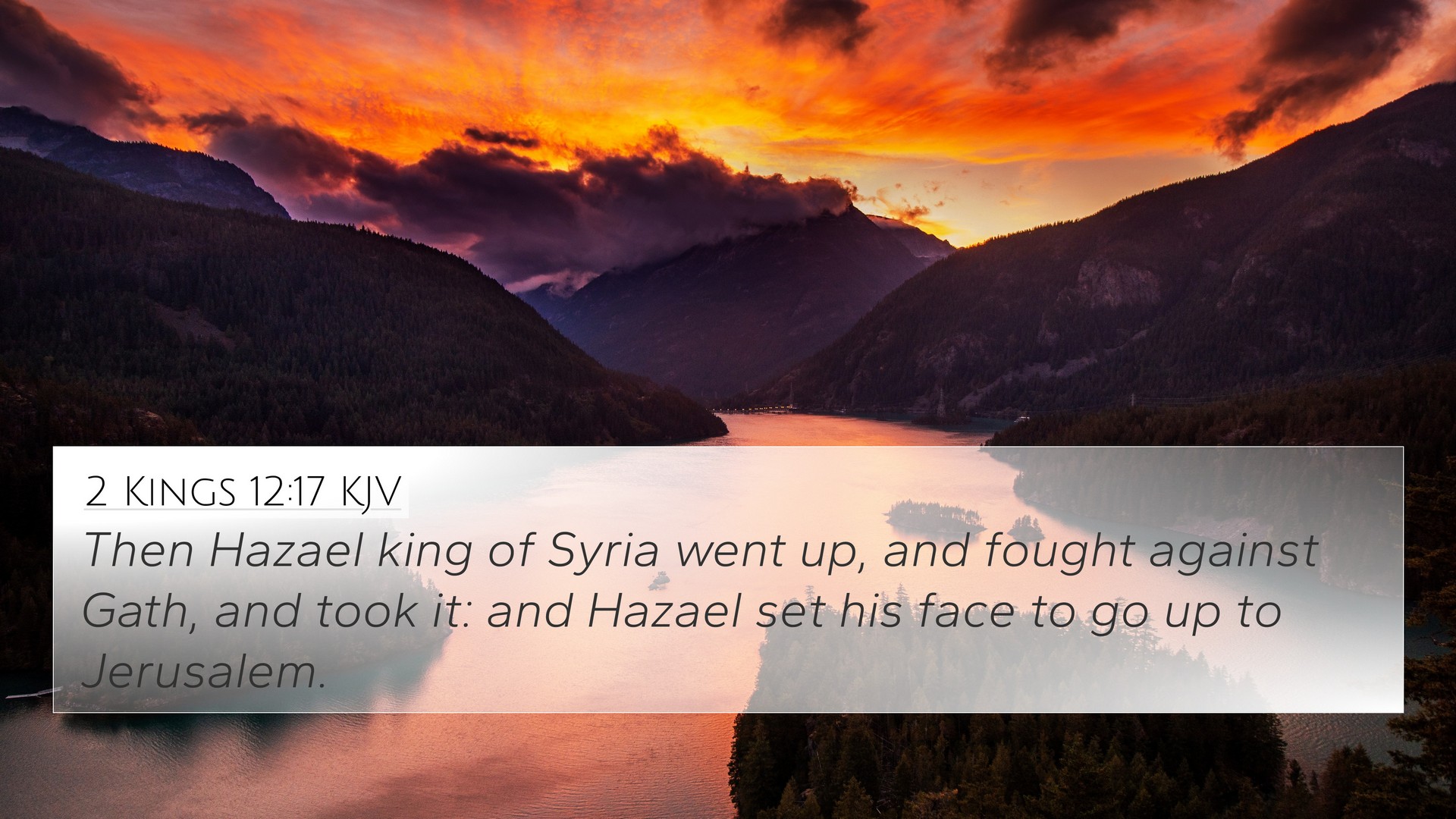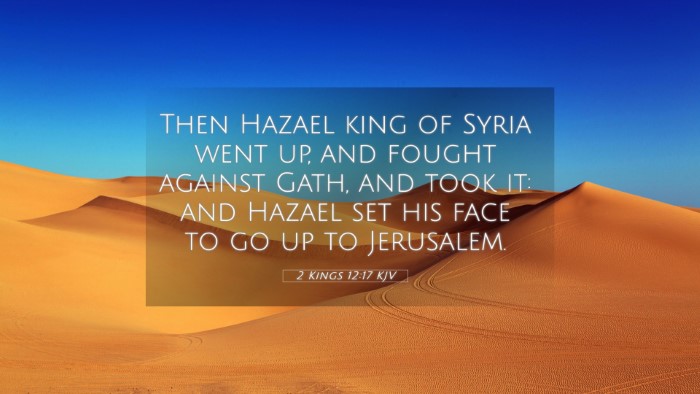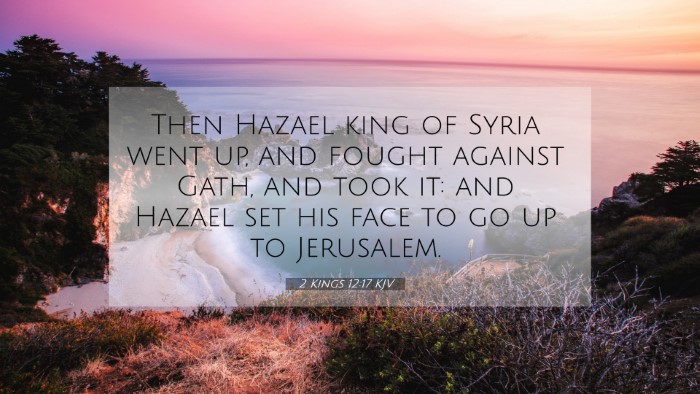Old Testament
Genesis Exodus Leviticus Numbers Deuteronomy Joshua Judges Ruth 1 Samuel 2 Samuel 1 Kings 2 Kings 1 Chronicles 2 Chronicles Ezra Nehemiah Esther Job Psalms Proverbs Ecclesiastes Song of Solomon Isaiah Jeremiah Lamentations Ezekiel Daniel Hosea Joel Amos Obadiah Jonah Micah Nahum Habakkuk Zephaniah Haggai Zechariah Malachi2 Kings 12:17 Similar Verses
2 Kings 12:17 Cross References
Then Hazael king of Syria went up, and fought against Gath, and took it: and Hazael set his face to go up to Jerusalem.
Uncover the Rich Themes and Topics of This Bible Verse
Listed below are the Bible themes associated with 2 Kings 12:17. We invite you to explore each theme to gain deeper insights into the Scriptures.
2 Kings 12:17 Cross Reference Verses
This section features a detailed cross-reference designed to enrich your understanding of the Scriptures. Below, you will find carefully selected verses that echo the themes and teachings related to 2 Kings 12:17 KJV. Click on any image to explore detailed analyses of related Bible verses and uncover deeper theological insights.
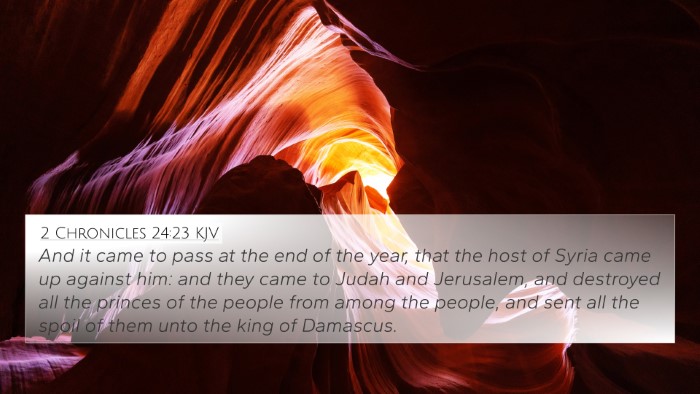
2 Chronicles 24:23 (KJV) »
And it came to pass at the end of the year, that the host of Syria came up against him: and they came to Judah and Jerusalem, and destroyed all the princes of the people from among the people, and sent all the spoil of them unto the king of Damascus.

1 Samuel 27:2 (KJV) »
And David arose, and he passed over with the six hundred men that were with him unto Achish, the son of Maoch, king of Gath.

Luke 9:53 (KJV) »
And they did not receive him, because his face was as though he would go to Jerusalem.
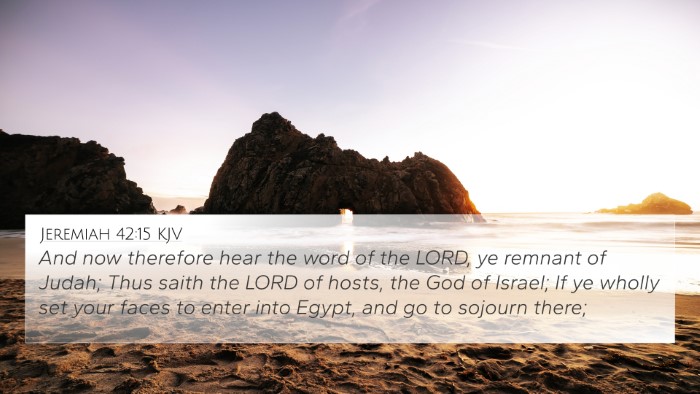
Jeremiah 42:15 (KJV) »
And now therefore hear the word of the LORD, ye remnant of Judah; Thus saith the LORD of hosts, the God of Israel; If ye wholly set your faces to enter into Egypt, and go to sojourn there;
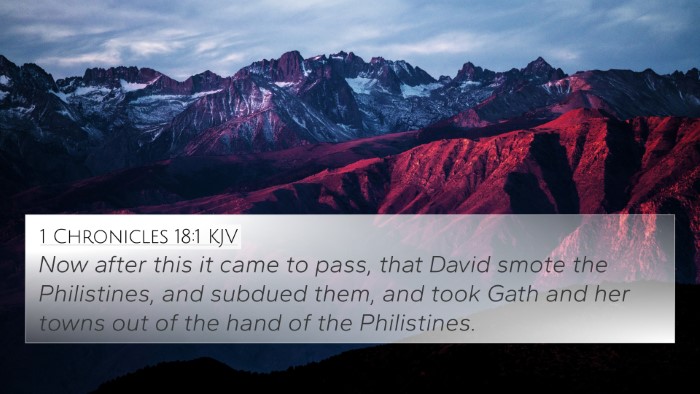
1 Chronicles 18:1 (KJV) »
Now after this it came to pass, that David smote the Philistines, and subdued them, and took Gath and her towns out of the hand of the Philistines.
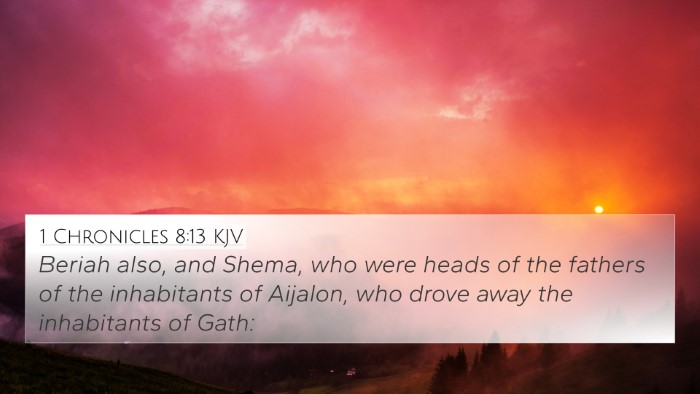
1 Chronicles 8:13 (KJV) »
Beriah also, and Shema, who were heads of the fathers of the inhabitants of Aijalon, who drove away the inhabitants of Gath:
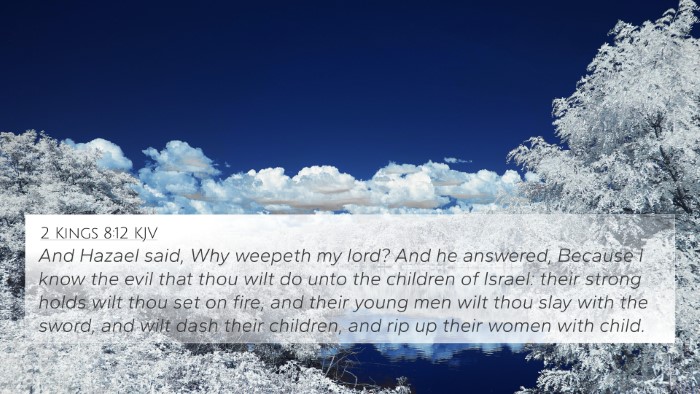
2 Kings 8:12 (KJV) »
And Hazael said, Why weepeth my lord? And he answered, Because I know the evil that thou wilt do unto the children of Israel: their strong holds wilt thou set on fire, and their young men wilt thou slay with the sword, and wilt dash their children, and rip up their women with child.
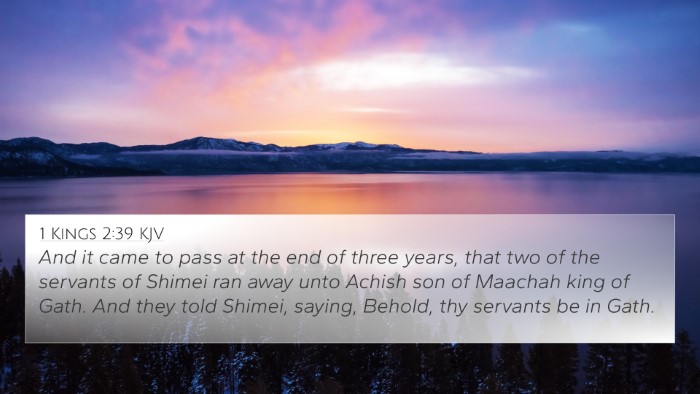
1 Kings 2:39 (KJV) »
And it came to pass at the end of three years, that two of the servants of Shimei ran away unto Achish son of Maachah king of Gath. And they told Shimei, saying, Behold, thy servants be in Gath.
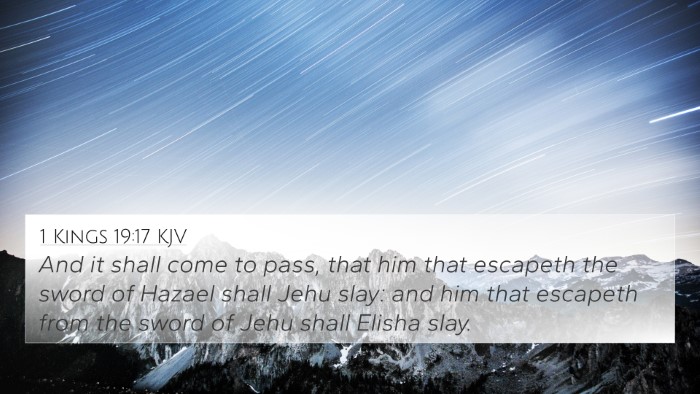
1 Kings 19:17 (KJV) »
And it shall come to pass, that him that escapeth the sword of Hazael shall Jehu slay: and him that escapeth from the sword of Jehu shall Elisha slay.

Luke 9:51 (KJV) »
And it came to pass, when the time was come that he should be received up, he stedfastly set his face to go to Jerusalem,
2 Kings 12:17 Verse Analysis and Similar Verses
Understanding 2 Kings 12:17
Verse Reference: 2 Kings 12:17 - "Then Hazael king of Syria went up, and fought against Gath, and took it: and Hazael set his face to go up to Jerusalem."
Summary of Verse Meaning
This verse marks a significant moment in the historical narrative of Israel and Judah, providing insight into the geopolitical dynamics of the time. Hazael, the king of Syria, culminates his military strategies by targeting the city of Gath, a crucial stronghold, before setting his sights on Jerusalem. This action showcases the aggressive campaign of Hazael and foreshadows the impending threats to the kingdom of Judah.
Insights from Public Domain Commentaries
- Matthew Henry: Matthew Henry emphasizes the severity of Hazael's military ambitions and the implications of his victory over Gath. He highlights that such victories often lead to greater aggression, suggesting that Hazael's next target—Jerusalem—symbolizes a direct challenge to the legitimacy of God's chosen people.
- Albert Barnes: Albert Barnes notes that Gath's capture was crucial, as it represented Hazael's growing power. He suggests that this victory was part of a divine plan to enact judgment upon Jerusalem due to its idolatry and disobedience to God. His analysis points to the broader theme of divine providence in human affairs.
- Adam Clarke: Adam Clarke provides a detailed historical context, noting that Gath was one of the cities of the Philistines and its capture marked a significant shift in regional power. Clarke discusses the theocratic implications of Hazael's campaigns and the symbolic nature of Jerusalem as the 'city of God.'
Theological Implications
The events described in this verse signal the interconnectedness of political and spiritual realms in the biblical narrative. The escalation of warfare represents not only physical threats but also spiritual challenges to the covenant community in Judah.
Cross-References for Deeper Understanding
- 2 Kings 8:12: Hazael is prophesied to bring trouble upon Israel, indicating a continuity of judgment.
- Amos 1:6-8: The prophecy against Gaza highlights the judgment on the Philistines, showing a thematic link to the events in Gath.
- Isaiah 7:1: The threat to Jerusalem is echoed here, illustrating the ongoing confrontations faced by the kings of Judah.
- Jeremiah 49:27: Prophecies regarding the destruction of Gath strengthen the narrative surrounding Hazael's military achievements.
- Matthew 24:2: Jesus references the destruction of Jerusalem, paralleling the historical events leading up to the fall.
- 1 Chronicles 4:39-41: Chronicles provides a genealogical context that enriches the historical backdrop surrounding Gath and its significance.
- 2 Chronicles 22:5: Connection to the reign of Ahaziah and the implications of intermarriage leading to challenges from surrounding nations.
Connecting Themes in Scripture
The linkage between Hazael's military actions and the prophetic voice throughout the Old Testament illustrates the continuous dialogue between divine judgment and human agency. Various passages inform our understanding of how political sinews intertwine with spiritual narratives, showcasing the profound implications of faithfulness versus rebellion in the face of increasing adversity.
Practical Applications for Contemporary Readers
Understanding 2 Kings 12:17 invites us to reflect on the importance of faithfulness amidst external trials. Just as the people of Judah faced threats from within and without, believers today must navigate challenging environments while holding steadfast to their values and convictions.
Moreover, this verse encourages readers to explore the complexities of their spiritual journeys through a historical lens, recognizing that Scripture does not stand alone but is a tapestry woven throughout time.
Conclusion
In summary, 2 Kings 12:17 serves as a poignant reminder of the tumultuous nature of biblical history, illustrating the intersection of military might and divine providence. Through cross-referencing and thematic studies, believers can deepen their understanding of Scripture, revealing layers of meaning that enrich their faith and provide guidance in challenging times.
For Further Study
Readers are encouraged to utilize Bible concordances and cross-reference guides as tools for a more profound exploration of the connections between Bible verses. Identifying relationships between Old and New Testament scriptures can illuminate themes of unity, prophecy fulfillment, and God's overarching plan for humanity.
